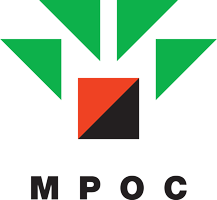Malaysian Palm Oil Council Applauds French Senate for Rejecting Discriminatory Palm Oil Tax
Kuala Lumpur – The Malaysian Palm Oil Council applauds the vote by the French Senate to reject the discriminatory tax against palm oil.
The planned tax is a violation of WTO and EU trade rules, would negatively impact France-Malaysia relations, and would contribute to putting 300,000 small palm oil farmers out of work. The effort of Senators Catherine Deroche, Catherine Procaccia and Charles Revert is a victory for common sense.
The CEO of MPOC, Dr Yusof Basiron, issued the following statement:
“Malaysia thanks the French Senate for rejecting the French Government’s misguided palm oil tax. The Senate has stood up and supported small farmers in Malaysia, who would be badly impacted by this tax.
“I pay tribute to Senators Catherine Deroche, Catherine Procaccia and Charles Revet, and all members of the Sustainable Development Committee, who voted in favor of removing the tax. Senators have helped not just small palm oil farmers, but the wider cause of France-Malaysia relations as well.
“The Senate vote should be a wake-up call, and the French Government should now drop this tax campaign against palm oil”
Key Facts about Malaysian Palm Oil
Malaysia is the second-largest producer of palm oil, and a major exporter. The Malaysian Palm Oil Council (MPOC) represents the interests of palm oil growers and small farmers, in Malaysia.
40% of all palm oil plantations in Malaysia are owned or farmed by small farmers, who have benefited from oil palm cultivation. Palm oil has been a major factor in Malaysia reducing poverty from 50% in the 1960s, down to less than 5% today. The palm oil industry directly employs more than 570,000 people, with another 290,000 people employed downstream.
Economic Impact of Palm Oil in France
According to respected economic analysts Europe Economics, palm oil contributes substantially to the French economy. 4,600 jobs in France are dependent on palm oil imports; palm oil contributes 167m EUR in tax revenue to France; and over 323m EUR in French GDP is attributed to palm oil imports.
Environment
The allegation that Malaysia is deforesting and destroying biodiversity is inaccurate. The Malaysian Government has committed to protecting at least 50% of land area as forest – a bold and far-sighted environmental commitment that no other country has matched, including France.
This commitment by Malaysia has been recognized by the United Nations and the World Bank. Malaysia is a recognized world-leader in forest protection.
Malaysia is committed to a balanced policy that allows for both land development for agriculture (including palm oil) and forest protection. Palm oil covers just 0.03% of the world’s agricultural land, and has the highest yield of any oilseed crop.
Health & Nutrition
Palm oil is a balanced oil, with 50% saturated and 50% unsaturated fatty acids. This balance provides excellent qualities for baking and food production. Palm oil is free of GMOs, and has been used as a replacement for dangerous trans fats, in Europe.
Multiple researchers and experts in France and across Europe confirm that palm oil is safe. A study from the French Foundation for Food & Health, explained that palm oil is not hazardous, and the amounts consumed in Europe are perfectly normal.
Similarly, a study in 2014 from the Mario Negri Institute in Milan, authored by Drs Elena Fattore and Roberto Fanelli, confirmed this point. The study found no evidence that palm oil is harmful.










Leave a Reply